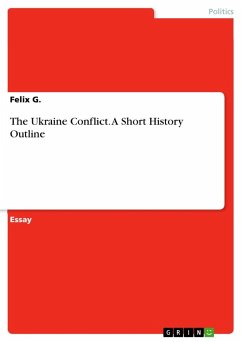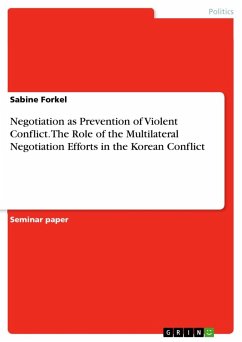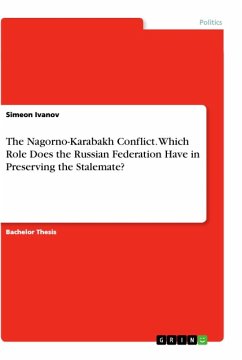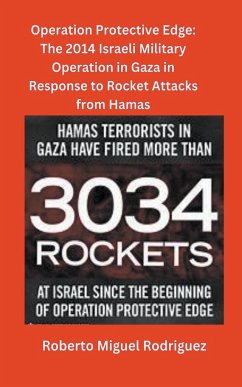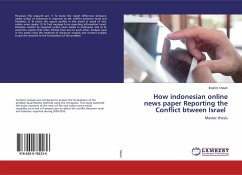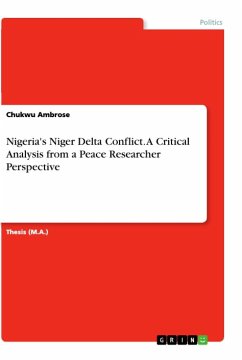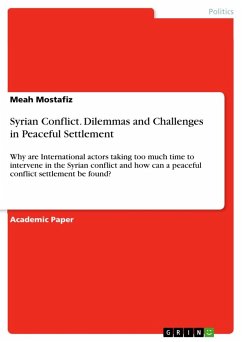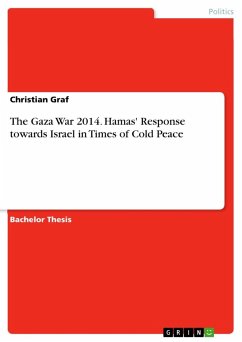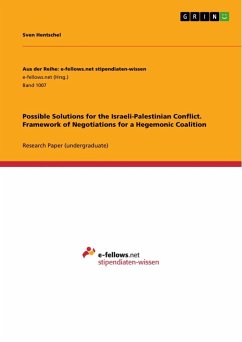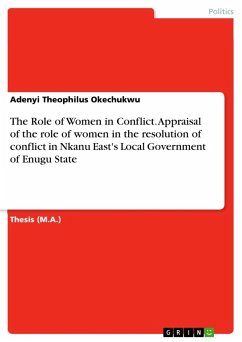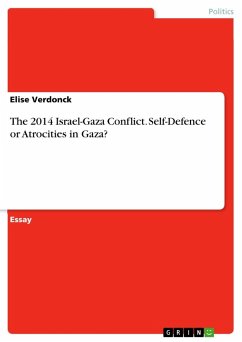
The 2014 Israel-Gaza Conflict. Self-Defence or Atrocities in Gaza?

PAYBACK Punkte
0 °P sammeln!
Essay from the year 2014 in the subject Politics - Region: Near East, Near Orient, University of Auckland, course: International Peace & Security, language: English, abstract: International law historically originates from the need to stabilise relations between people and states. To this day, one of its most classic functions remains ensuring the peaceful coexistence between states. Global history is featured by conflicts between states, and even today there is no shortage of disputes. Besides principles of demarcation of territories and jurisdictions between states, the international law dev...
Essay from the year 2014 in the subject Politics - Region: Near East, Near Orient, University of Auckland, course: International Peace & Security, language: English, abstract: International law historically originates from the need to stabilise relations between people and states. To this day, one of its most classic functions remains ensuring the peaceful coexistence between states. Global history is featured by conflicts between states, and even today there is no shortage of disputes. Besides principles of demarcation of territories and jurisdictions between states, the international law developed a wide range of techniques to resolve conflicts. Two of the major sub-branches of international law in this context are the ius ad bellum and the ius in bello. The former is concerned with the law that governs the use of force, whereas the latter deals with the conduct of the armed conflict itself . The legal abolishment of war was introduced by the United Nations (hereafter "UN"). Nonetheless, according to the Charter of the United Nations of 24 October 1945 (hereafter "UN Charter"), self-defence can serve as a justification for the use of force when certain conditions are met (article 51). Since the Second World War, the face of armed conflicts changed: inter-state conflicts have receded significantly in favour of new wars in which non-state actors play the leading role. Non-state actors are individuals or organisations that have a significant political influence, but are not allied to any particular state. Since the 9/11-attacks, the legality of self-defence against private violence (i.e. violence of non-state actors) has become a major question in the international ius ad bellum debate. While during the Cold War the state-paradigm dominated and states generally held on to a certain form of state involvement in case of a terrorist attack, today it seems that the international community no longer has principle objections to the exercise of self-defence against non-state actors, even if the initial attack cannot be attributed to a state. As a response to the proliferation and rise of non-state actors, attempts to stretch the limits of the definition of self-defence to include attacks by non-state actors can be witnessed. The Israel-Gaza conflict, one of the most complicated ongoing international conflicts with non-state actors, has - as a part of state practice - also contributed in the evolving standard of the right of self-defence.




